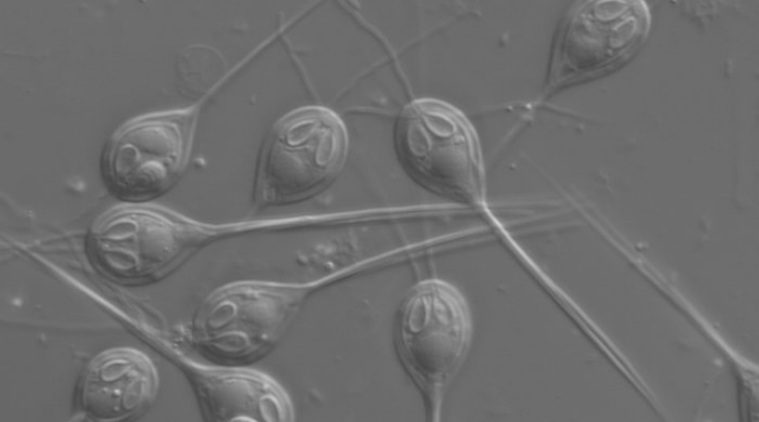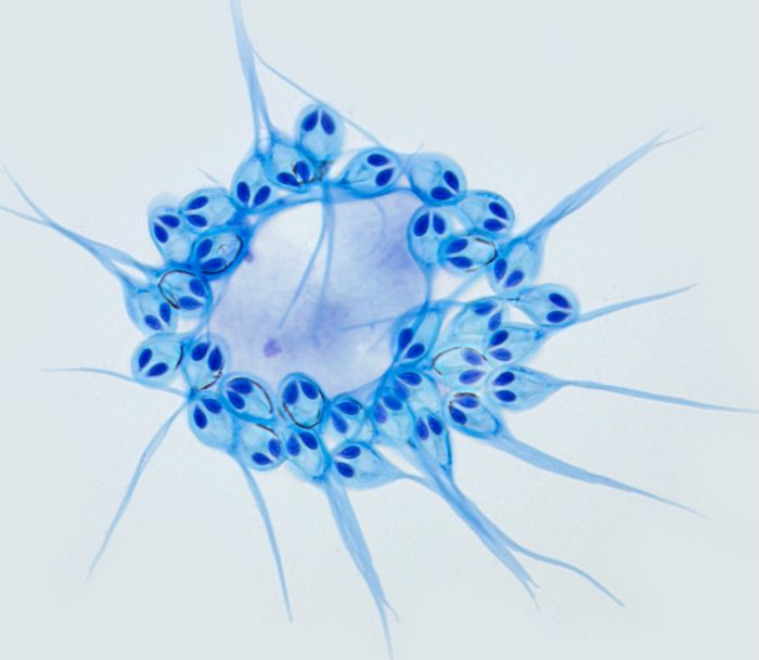 A team of researchers led by Dayana Yahalomi of Tel Aviv University in Israel made the discovery. (Image: Stephen Douglas Atkinson)
A team of researchers led by Dayana Yahalomi of Tel Aviv University in Israel made the discovery. (Image: Stephen Douglas Atkinson)
Since our early days of learnings, we’ve been taught that multicellular life like ours need oxygen to live. However, this fact also could not escape the exception rule of science as researchers just discovered a jellyfish-like parasite without a mitochondrial genome.
The mitochondria are present in every multicellular organism ever known to the humankind. The discovery of this new animal makes it the first such organism to not have the mitochondria, meaning it doesn’t breathe and lives its life completely free of oxygen dependency. The research has been published in Proceedings of the National Academy of Sciences of the United States of America or PNAS.
According to scientists, life started to develop the ability to metabolise oxygen sometimes over 1.45 billion years ago. A larger archaeon engulfing a smaller bacterium, resulted in a symbiotic relationship and eventually those bacteria ensconced within became organelles called mitochondria.
Every cell in our body (except red blood cells) has large numbers of mitochondria, which are essential for respiration process as they break down oxygen to produce molecule called adenosine triphosphate, which is used by the multicellular organisms to power cellular processes.
Express Tech is now on Telegram. Click here to join our channel (@expresstechie) and stay updated with the latest tech news
“Using deep sequencing approaches, we discovered that a member of the Cnidaria, the myxozoan Henneguya salminicola, has no mitochondrial genome, and thus has lost the ability to perform aerobic cellular respiration,” the abstract of the paper says.
Scientists say that although aerobic respiration is a hallmark of eukaryotes — organisms whose cells have a nucleus enclosed within membranes — a few unicellular lineages, growing in hypoxic environments, have secondarily lost this ability. They have found that in the absence of oxygen, the mitochondria of these organisms lost all or parts of their genomes and evolved into mitochondria-related organelles.
 Henneguya salminicola.(Image: Stephen Douglas Atkinson)
Henneguya salminicola.(Image: Stephen Douglas Atkinson)
The new discovery indicates that these core eukaryotic features are not predominant among animals. Scientists have said that their analyses suggest that H salminicola lost not only its mitochondrial genome but also nearly all nuclear genes involved in transcription and replication of the mitochondrial genome.
“Our discovery confirms that adaptation to an anaerobic environment is not unique to single-celled eukaryotes, but has also evolved in a multicellular, parasitic animal,” the researchers wrote in their paper. “Hence, H salminicola provides an opportunity for understanding the evolutionary transition from an aerobic to an exclusive anaerobic metabolism.”